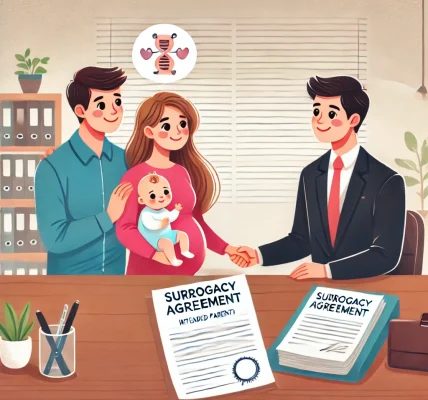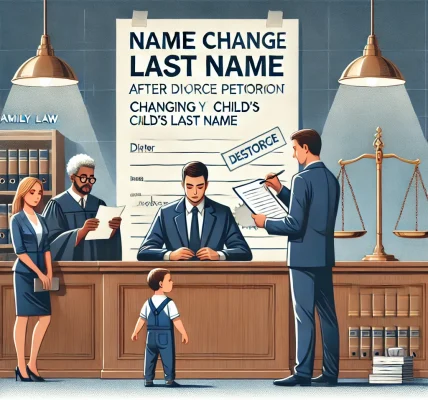Introduction
When a marriage faces irreconcilable differences, couples often find themselves considering two primary legal options: divorce or legal separation. While both choices allow spouses to live apart and establish individual lives, they come with different legal, financial, and emotional implications.
Understanding the differences between divorce and legal separation is crucial for making an informed decision that aligns with your personal, financial, and family goals. This guide explains both concepts, their pros and cons, and how to determine which option might be best suited for your circumstances.
Disclaimer: This article is for informational purposes only and should not be considered legal advice. Laws vary by jurisdiction, and consulting a qualified family law attorney is always recommended before making any legal decisions.
What is Legal Separation?
Legal separation is a formal arrangement where spouses live apart while remaining legally married. It involves a court order that outlines rights and responsibilities, such as child custody, spousal support, and property division, without dissolving the marriage.
Key Features of Legal Separation:
- The couple remains legally married but lives separately.
- Courts may issue orders regarding child custody, visitation, spousal support, and division of assets.
- Either spouse may retain benefits such as health insurance or tax advantages, depending on jurisdiction and employer policies.
- Legal separation can sometimes serve as a trial period before divorce or an alternative for couples who do not want to legally end their marriage for religious, personal, or financial reasons.
Pros of Legal Separation:
✅ Gives Time for Reconciliation: Couples who are uncertain about divorce may use separation as a trial period. ✅ Retains Certain Legal Benefits: Spouses can maintain health insurance, social security benefits, and tax benefits (depending on laws and policies). ✅ Less Emotional Finality: Some individuals prefer separation over divorce for emotional or religious reasons. ✅ Protects Financial Interests: Allows legal protection regarding assets, debts, and support without dissolving the marriage.
Cons of Legal Separation:
❌ No Freedom to Remarry: Since the marriage is still legally intact, neither spouse can remarry unless they get a divorce. ❌ Possible Financial Entanglements: Debts and financial responsibilities may still be tied to the other spouse. ❌ Not Available in All States: Some jurisdictions do not recognize legal separation.
What is Divorce?
Divorce is the legal dissolution of a marriage, meaning both parties return to single status, with all marital obligations legally terminated. Unlike legal separation, divorce is a permanent decision.
Key Features of Divorce:
- The marriage is legally ended, and both parties are free to remarry.
- Courts determine child custody, spousal support, division of property, and debt allocation.
- Assets and financial responsibilities are permanently divided.
- Each spouse is legally and financially independent.
Pros of Divorce:
✅ Legal Independence: Spouses are free from any marital obligations and can remarry. ✅ Clear Financial Separation: Assets and debts are permanently divided. ✅ Closure & Emotional Healing: Ending the marriage can provide emotional relief and a fresh start.
Cons of Divorce:
❌ Permanent Decision: Unlike separation, reconciliation is no longer legally an option. ❌ May Affect Finances & Benefits: Loss of shared insurance, tax benefits, and potential spousal social security benefits. ❌ Can Be Emotionally and Financially Draining: The legal process can be lengthy and costly, depending on the level of conflict.
Key Differences Between Divorce & Legal Separation
| Factor | Legal Separation | Divorce |
|---|---|---|
| Marital Status | Still legally married | Legally ended |
| Ability to Remarry | No | Yes |
| Financial Ties | Spouses may still share finances | All finances are permanently separated |
| Health Insurance & Benefits | May still be available | Typically lost |
| Emotional & Religious Considerations | Provides an alternative to divorce | Final and legally binding |
| Reconciliation Possibility | Possible | Not without remarriage |
How to Choose Between Divorce and Legal Separation
Consider Legal Separation If:
- You want time apart to decide if divorce is the right choice.
- You need to retain health insurance, tax, or social security benefits.
- You have religious or moral objections to divorce.
- You want to protect financial and parental rights without ending the marriage.
Consider Divorce If:
- You are certain the marriage is over and want legal independence.
- You want a clean break from financial entanglements and debts.
- You intend to remarry in the future.
- You want to move forward emotionally without legal ties.
Legal Process of Separation vs. Divorce
Legal Separation Process:
- File a Petition – One spouse files for legal separation in family court.
- Court Orders & Agreements – The court outlines child custody, support, asset division, and spousal support.
- Live Separately – Spouses adhere to the terms while remaining legally married.
- Modification or Conversion – If desired, legal separation can later be modified or converted into divorce.
Divorce Process:
- File for Divorce – One spouse files a petition in court.
- Serve Papers & Response – The other spouse is notified and may respond.
- Negotiation & Settlement – Both parties work out agreements on assets, custody, and support (or go to trial if disputed).
- Final Divorce Decree – Once finalized, the marriage is legally dissolved.
Conclusion
Choosing between divorce and legal separation is a deeply personal decision with long-term implications. While legal separation allows couples to live apart while preserving legal benefits and the possibility of reconciliation, divorce provides complete independence but is a permanent choice.
Understanding the legal, financial, and emotional aspects of both options can help you make the best decision for your situation. Always consult a family law attorney to navigate the legal complexities and ensure your rights are protected.
Whether you pursue legal separation or divorce, the goal should always be a resolution that prioritizes well-being, financial stability, and, if applicable, the best interests of children involved.




